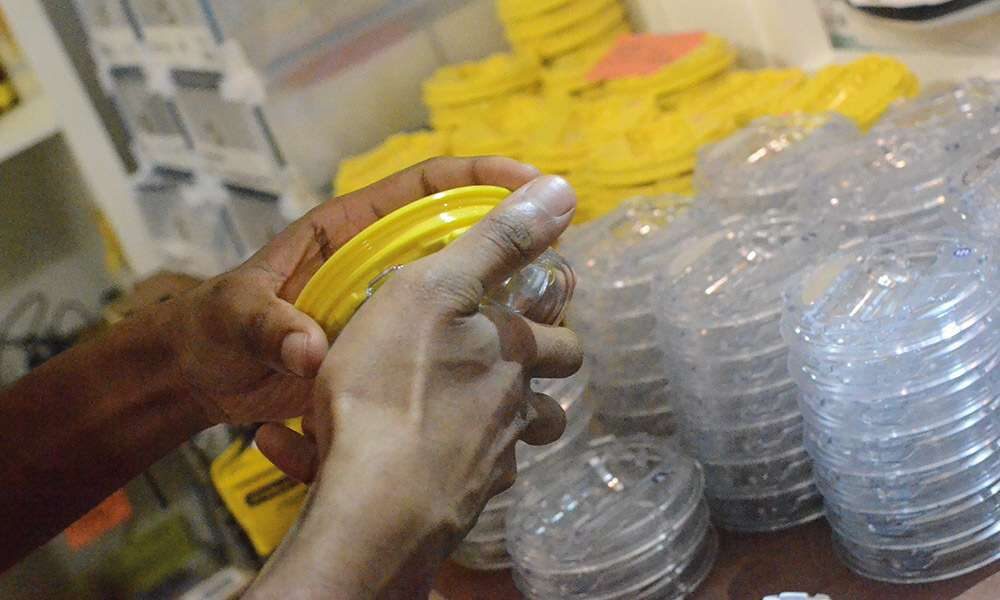
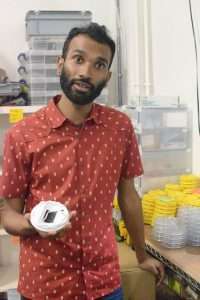
Hi Aran. Can you tell us what your role at SNTech is, and what it involves?
I am Chief Technology Officer (CTO) at SafetyNet Technologies. My role involves working with the product team to design, develop and deliver the products that we’re going to be selling to fishermen all over the world. I also form a bridge between other parts of the business and our product development team, so that might be the business unit, or science leads, and how all of that influences how we make our products.
At the moment I’m currently working with a new factory to establish a manufacturing relationship with them. They will be making our product, Pisces, in larger quantities than we’ve made ourselves in the past. I’m also looking at the specific tests that our product will undergo alongside the rest of our team, specifically, EMC testing, which is a kind of test where we ensure that electrically, our product does not disturb – or is not disturbed by – any other electronic product. You may have noticed that when you can’t tune your old-style TV or radio when it’s in a certain position, that’s usually because of electromagnetic interference. We want to make sure our product doesn’t create anything like that, or absorb anything that would stop it from functioning. This is critical when designing electronics for use at sea.
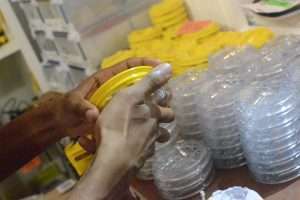
![]() Can you tell me what the benefits of using Pisces are for people working in the fishing industry?
Can you tell me what the benefits of using Pisces are for people working in the fishing industry?
Pisces is a piece of technology that allows human beings in the ocean to integrate better into the ecosystem. So instead of there being a notion that fishers are ‘invading’ the ocean space, we hope that our device will allow our fishing practices to co-exist more peacefully with marine life and work as part of the ecosystem. Additionally, Pisces benefits fishing crews from an economic perspective. By using our devices, fishers will stop catching species of fish that they didn’t intend to catch in the first place. This directly benefits fishermen, because if they catch fish that they don’t want, it will be taking up space in the fishing vessels. They can’t just throw it back into the water, because it would pollute the ocean, so it needs to be brought back to shore and counted. All this is taking up valuable space on their boats, which could otherwise be used for profitable catch. So Pisces really benefits the bottom line of a fishing operation.
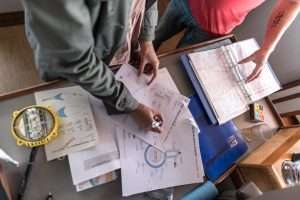
In terms of the wider fishing industry and the future of sustainable fishing, what are your hopes?
My hope for the future is that fishing will be seen as part of an ecosystem, rather than something that’s working against it. At SafetyNet, we think that really well-designed pieces of technology can help us to achieve that.
If you work in the fishing industry and are interested in finding out more about how our Pisces product can support your business, contact our customer success team: enquiries@sntech.co.uk




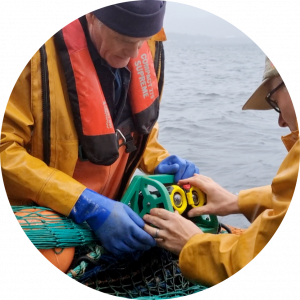
Enter the giveaway below for the chance to try an underwater camera on your fishing vessel for free.